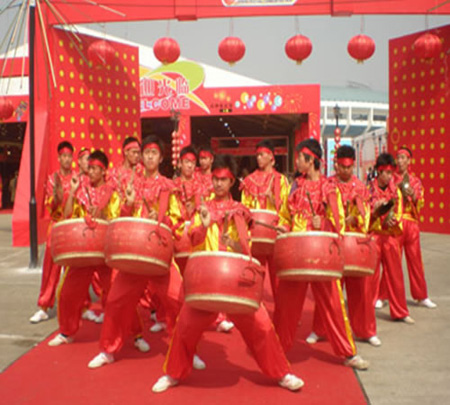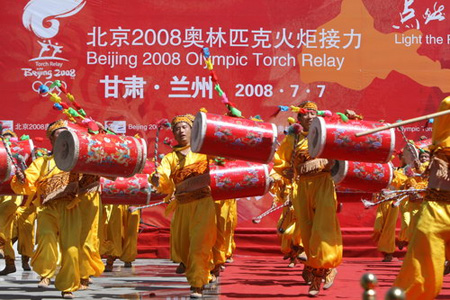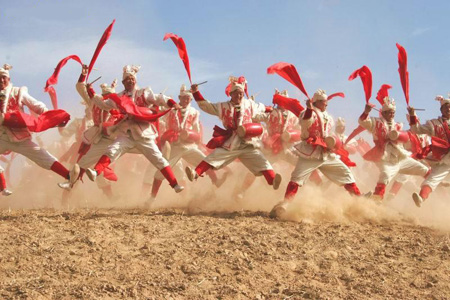more>>More News
- National Day
- ways to integrate into Chinese style life
- Should they be in the same university with me?!!
- Chinese Ping Pang Legend: the Sun Will Never Set
- A Glance of those Funny University Associations
- mahjong----The game of a brand new sexy
- Magpie Festival
- Park Shares Zongzi for Dragon Boat Festival
- Yue Fei —— Great Hero
- Mei Lanfang——Master of Peking Opera
China-featured folk drum dance
By admin on 2014-12-22
In China, the drum is a symbol of vigor and the drum
dance represents power.
Developed in the Neolithic Age, the drum was made of
clay and symbolized the beginning of cultural dance. As early as the Shang and
Zhou dynasties, in the 10th century BC, the original form of the drum dance took
shape and after hundreds of years, many different kinds of folk drum dances have
evolved.

The powerful gong and drum dance is widely performed in Hongdong, Huoxian and Fenxi counties in Shanxi Province. It used to be performed in temple fairs. The performers vigorously beat the large drums, gongs and cymbals to symbolize their lives and wishes for a good harvest. A team of 410 Shanxi farmers performed at the 1990 Asian Games in Beijing.

The Taiping drum dance in Lanzhou expresses the yearning of a peaceful
world and a good harvest. It is played among the Han, Mongolian and Manchu
people. The body of the drum is painted red with a design of lions, and there is
the yin and yang design on the head of the drum, and when players beat the drum,
it sounds "earth shaking". With some double-faced gongs, the Taipin drum dance
adds excitement to festivals and encourages a lively atmosphere.

The Ansai waist drum dance in Shanbei or Northern Shaanxi is a dramatic
scene to watch. Besides the vigor of Shanxi powerful gong and drum dance and
Lanzhou Taiping drum dance, the Ansai waist drum dance presents bustling
activity with emphasis on both the group and individual performers. The various
gestures such as rushing and jumping, together with changes in rhythm, encourage
people to free themselves from the farmland and make a better life in the loess
plateau, which is the essence of the drum dance.
- Contact Us
-
Tel:
0086-571-88165708
0086-571-88165512E-mail:
admission@cuecc.com
- About Us
- Who We Are What we do Why CUECC How to Apply
- Address
- Study in China TESOL in China
Hangzhou Jiaoyu Science and Technology Co.LTD.
Copyright 2003-2024, All rights reserved




 Chinese
Chinese
 English
English
 Korean
Korean
 Japanese
Japanese
 French
French
 Russian
Russian
 Vietnamese
Vietnamese
